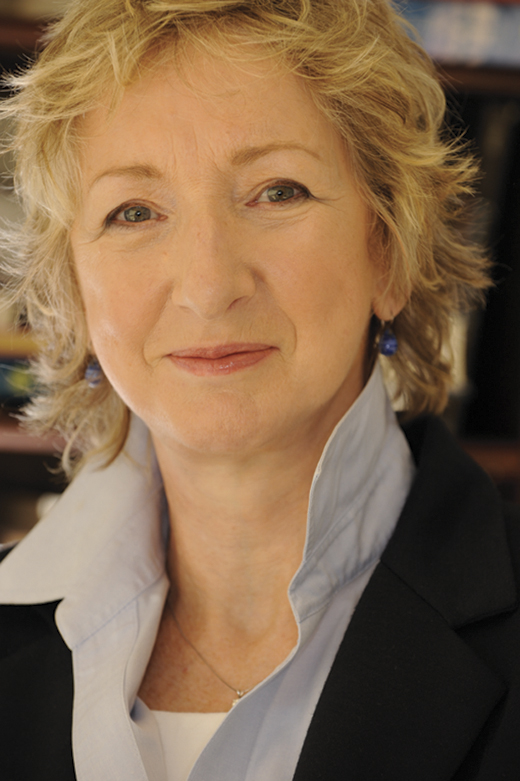The Irish writer John B. Keane once said of my home town that “they should build a wall around it and let no man in and let no man out.”
I don’t know why he said that about An tAonach, which means Fair or Market place. (The town was named Nenagh by the English during that great renaming which saw Gaelic names replaced by ones which bore no relationship to the Irish.)
Nenagh when I was growing up was, and still is, an agricultural town, dominated by the ruins of a 12th century Norman castle and the steeple of St. Mary’s church – grand for a country town – which we attended for Sunday Masses and Holy Days of obligation.
Religion played a big part in growing up in Ireland. Vocations were high, with many young men and women joining to serve in the foreign missions. As children we were taught to support their efforts through the “pennies for the Black Babies” collection boxes.
A penny, hard to come by, could fetch you a lot in those days. It could light a candle to help get some poor soul out of purgatory, buy you a penny bar, two gob stoppers, four aniseed balls, or it could go in the Box to save the souls of the black babies in Africa. They couldn’t go to heaven unless the missionaries baptized them first, you see.
For all this fascination with the black babies, I only ever saw one black man in our town. I think he had something to do with the Canadian company which took over the local mine, temporarily staunching the flow of emigration of laborers and the younger sons of farmers who wouldn’t get the land.
When the mine closed, not just the countryside was devastated — the ground polluted and ripped apart; families whose mine income had elevated them to the edge of poverty sank back to poverty.
Ireland of the `50s and `60s and even the `70s and `80s, was malnourished, particularly when it came to the welfare of mothers and children, but even then foreign poverty was more deserving than our own, and no matter how little people had, they gave especially towards relief of hunger in Biafra, and Nigeria, and later Somalia.
One particular Sunday in the `60s, we crowded – my brothers, sisters and my mother – into one bench. The church was packed, but the black man in front of us had the whole bench to himself.
My mother, who always prayed out loud, seemed to put particular emphasis in her responses as we gawked at him with curiosity and wonder.
Not much ever happened in Nenagh. I left there in my late teens and haven’t returned much. Most of my family live in America now, but I still have connections there. My brother still farms the land. And I am always pleased when Nenagh comes up in conversations.
People recognize the town, having driven through it on their way to Limerick or Kerry. They will sometimes mention having stopped in one of the town’s two hotels.
The Cannel Hotel, which de Valera favored on his trips south, is no longer there. When I was a child my father brought me to meet the architect of “a Catholic country for a Catholic people.”
I suppose, after hundreds of years of British oppression, Dev could be forgiven for subscribing to the “build a wall around it” mentality.
Recently, a by-pass was built around Nenagh so tourists will no longer have to navigate the town’s narrow streets. No doubt people will soon forget about it.
I was surprised a couple of weeks ago to pick up an Irish newspaper and see my home town mentioned. The last time Nenagh made the papers was when one of the “foreign” companies poisoned the water with chemical waste. This time, the poison was of another kind.
A Pakistani doctor had his nose broken in a Nenagh pub after being told “Black Paki b***ard go home.” He is quoted as saying that he won’t be forced out, but he now takes a different route home each night to avoid being set upon.
The article forced me to think of how Ireland is dealing with its changing face.
The Nigerian woman Bridget in our story “A Darker Shade of Green” doesn’t know how she came to be named after an Irish saint. Perhaps someone will tell her the story of the Black Babies.
I hope that Ireland will regain its generosity of spirit. When we had little, we gave what we couldn’t afford. Of course, it’s so much easier when the pennies get posted overseas.
“Build a wall around it…”
We’re all a bit afraid of the dark.
I was walking home from work a couple of weeks ago. It was late and the block leading to my apartment is poorly lit. I noticed a young man walking 20 yards or so behind me. I picked up my pace without actually breaking into a run. After a minute or so I glanced to my right and saw that the man, a black youth, was walking in the middle of the street. Taken aback, I asked him why, and he answered, “Because I don’t want to scare you.”
I remembered the words of a black student I once knew. “How would you like it,” he asked, “if you knew the first thing that came into a person’s mind when you met them is, `Oh, he’s black’?” Here I was an immigrant, and an American – a New Yorker by his accent – was walking in the middle of the street so as not to frighten me. ♦


Leave a Reply